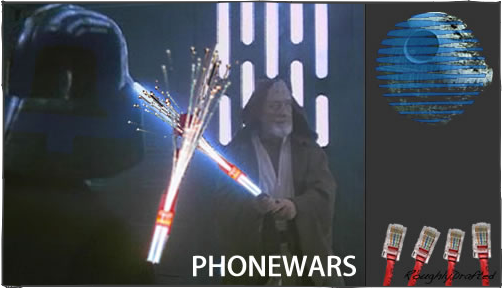

Voice over IP is a technology designed to move communications from the existing, old phone system to the Internet. This series of articles looks the benefits and risks of VoIP and how the technology is developing. This first article considers the reasons for, and challenges behind, replacing the existing old phone empire with a new system.
The Plain Old Telephone System



The century old telephone system is fantastically simple on the user end: it sends an analog signals over two wires, much like an electric can on a string. At the phone company's end, technology has progressively improved, with the manual switchboards and bundles of copper wires being replaced with automated digital switching equipment routing calls over fiber optic conduits.
Fatal Flaws in the Old Phone System
Little has changed for the end user, however. Here's why that's a problem:
Little has changed for the end user, however. Here's why that's a problem:

-
•It only supports voice grade audio quality. Its two copper wires are strained to carry data, which must first be converted to an analog sound signal (that's what a modem does). Internet data services and video conferencing demand far faster data throughput than the existing phone system was designed to support.
-
•Calls are a circuit switched model. Making three-way or conference calls are not innately supported by the old phone system; both require special equipment or operator intervention that makes them expensive and complicated to set up. Further, the old switchboard model does not support modern data packet features for end users, like caller authentication, call encryption, or advertising presence information, such as: free, busy, or unavailable.
-
•It is based on a pay per call billing system. The old phone network was built upon a business model designed to bill users proportional to the number and length of calls they placed. That works fine in a circuit switched system, but for a packet switched data system, where users demand always-on connectivity and may rapidly connect to hundreds of hosts or open long and sustained data connections, it's more desirable to pay an upfront fixed fee. In the US, Internet service is almost always paid for with a set or unlimited usage fee.
We already have a solution for solving all those problems with the old phone system: the Internet. An increasing percentage of the world has access to fast Internet connections, so why do we still continue to use an archaic system to communicate?
-
•It's a simple system. The phone system's simplicity means that it is much easier to deliver basic service to remote locations, or restore service after a disaster, and much easier to troubleshoot and maintain in flawless, nonstop operation, particularly when compared to managing a high speed data network. There's simply less to go wrong.
-
•It's a robust system. The old phone system is fairly bulletproof because it was designed as a high-availability system. Phones can be powered directly from the network, and often remain in operation even during a blackout because the phone companies run their own emergency power. Emergency services such as 911 depend on that type of availability.
-
•It's a utilitarian monopoly. No free market enterprise would pay to string phone wires from a cabin in Montana or an remote island off Alaska. Governments establish monopolies for utilities, granting them freedom from competition in exchange for the responsibility to serve the public in unprofitable ways. They also collect taxes and fees on communications to make the system self sustaining, so that the monopoly can provide all users with affordable service.

An Old Empire Under Attack
The old phone system might not be going away immediately, but consumer demands for improved calling features, and the desire to place calls using the Internet access they already pay for, are not going away either.
The telephone companies have simply failed to deliver on their responsibility to deliver modern services for the public benefit. Coming up next: how and why they failed to introduce modern telephony, and what is happing instead. Stay tuned!
Next Article:
This Series
Put RoughlyDrafted Magazine on your Dashboard and be the first to see the latest articles! I appreciate blog links, social networking postings such as deli.cio.us, and reddit.com, and readers who share articles via emails or newsgroups. Thanks!

| | Comment Preview
 Read more about:
Read more about:

 Send |
Send |

 Subscribe |
Subscribe |
 Del.icio.us |
Del.icio.us |
 Digg |
Digg |
 Furl |
Furl |
 Reddit |
Reddit |
 Technorati
Technorati
Click one of the links above to display related articles on this page.
The Road to VoIP: Phone Wars
Tuesday, July 4, 2006















